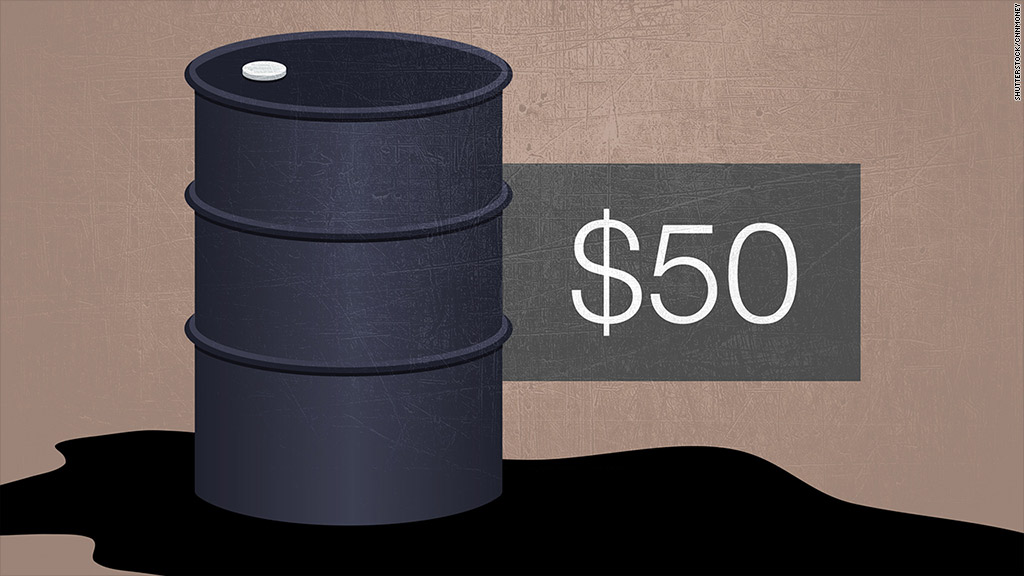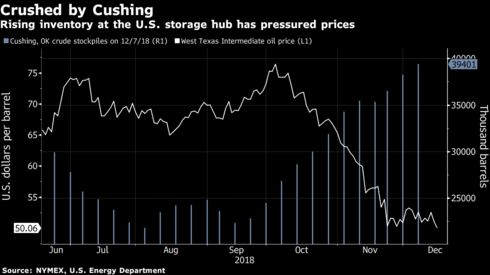
-
Skepticism abounds despite exporters’ pledges to curb output
-
WTI crude falls 2.6 percent, erasing early-session gains
OPEC has its work cut out to persuade the market that its output caps
will stabilize oil prices -- and U.S. producers aren’t helping.
Crude
settled below $50 a barrel in New York on Monday for the first time in
more than a year and continued falling in after-hours trading. The slide
began after data provider Genscape Inc. was said to report growing
inventories at the biggest American storage hub and intensified as the
U.S. Energy Department forecast higher output in the country’s shale plays.
Oil prices are on track for a third straight monthly decline
despite efforts by OPEC, Russia and other major exporters to halt the
slide. Crude had slunk near $50 in recent weeks but always rebounded.
Crossing the threshold was “significant," said Michael Loewen, a
commodities strategist at Scotiabank in Toronto.
“We’re probably going to see a supply slowdown in the U.S.," he said by telephone. “I do think that producers will react."

A dive
for U.S. equities added to the pressure on Monday. The S&P 500 hit a
14-month low as investors anticipated a Federal Reserve interest-rate
hike that could slow the economy.
West
Texas Intermediate for January delivery fell $1.32 to settle at $49.88 a
barrel on the New York Mercantile Exchange. Bears gained steam after
the official close, with oil falling to $49.01, the lowest level since
September 2017. The WTI February contract fell to $49.47.
Brent
for February settlement closed down 67 cents to $59.61 on London’s ICE
Futures Europe exchange. The global benchmark traded at a premium of
$9.41 a barrel to same-month WTI.
“There’s always a question mark over to what extent the OPEC
countries and Russia will or will not fulfill their promises,” said
Pavel Molchanov, a Raymond James & Associates Inc. analyst. “There
is naturally some skepticism.”
It typically takes about six weeks
for OPEC nations to implement supply changes, and Saudi Arabia, the
group’s biggest producer, faces added political pressure from U.S.
President Donald Trump to keep the taps open, Molchanov said.
| Other oil-market news: |
|---|
|
— With assistance by Catherine Ngai, and Rakteem Katakey
No comments:
Post a Comment